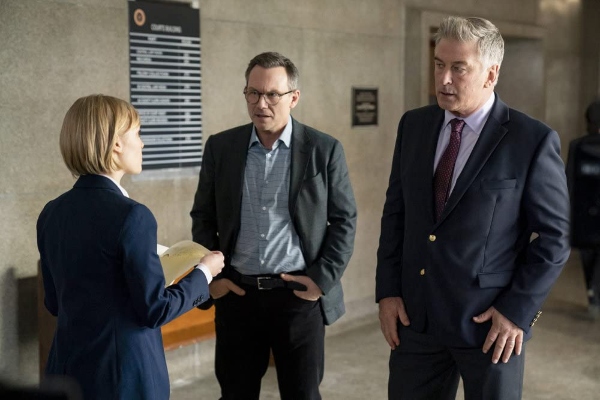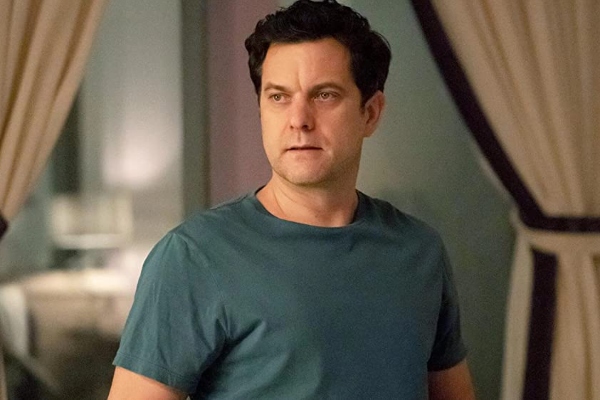Often, the scariest horror stories out there are the ones based on true stories. It couldn’t be more true than it is in the story of Christopher Duntsch, the subject of the first season of hit podcast, Dr. Death. That story was turned into a limited series released on Peacock back in July, and on Showcase in Canada beginning this weekend.
Patrick Macmanus, creator and executive producer, adapted Dr. Death into a series starring Joshua Jackson as Christopher Duntsch, and co-starring Christian Slater, Alec Baldwin and AnnaSophia Robb. Macmanus recently spoke with us about bringing this story to the small screen. We touched on the importance of highlighting what allowed Duntsch to get away with what he did for so long, and working with Joshua Jackson on a chilling performance.
How did you become involved in adapting Dr. Death for TV, and why was this something you wanted to work on?
Honestly, it was dumb luck on my part. I was working on another show in New York called Happy. I was sent the first two or three episodes of the Dr. Death podcast by Wondery and Escape Artists, who were our producing partners. And I was immediately taken by it, specifically by the characters. Christopher Duntsch was an extraordinarily fascinating “bad guy.” He was not one or two-dimensional, but a fully fleshed out, three-dimensional person.
Regardless of what I’m about to say, Duntsch deserves to be in jail for the rest of his life. He was somebody with a great future in front of him if he’d stayed in research and never gone into surgery. He was very intelligent, very driven, and had a great mind for research. His patents are still used today, which is fascinating. And we’d be talking about him a lot differently if he’d stayed in that realm.
Exploring this very complex, bordering on tragic villain, was the first thing that drew me to the project. The second part was the heroes: Doctors Henderson (Alec Baldwin) and Kirby (Christian Slater), and Michelle Shughart (AnnaSophia Robb). The doctors don’t have badges and guns. They’re two “everymen” trying to figure out how somebody in Duntsch’s position could be defiling the system that they loved. They were trying to figure it out in the same way that the audience is now trying to figure out why he’s doing what he’s doing. That, to me, was fascinating.
And then to pair those two with Michelle Shughart — who is young and driven, and ambitious and intelligent — the writers’ room knew that we had three really great heroes to bring Duntsch down. On top of that, it wasn’t just Christopher Duntsch, it was the entire system that failed to stop him.
It was obvious to me that I should fight for this project and try to get it. Two other writers were trying to get it as well, and I lucked out.
How important to you was weaving in criticism about the mismanagement and loopholes that allowed Christopher Duntsch to get away with what he did for so long?
It’s built into the series from the beginning. It’d be impossible to tell this story without exploring the systemic failure that allowed it to continue. We wouldn’t be telling the full story had we not explored it. If we had a couple of more episodes, I would’ve explored it in greater depth. Quite a bit of what led to that systemic failure in not stopping Christopher Duntsch earlier was the political side of things. It was the laws and politicians in Texas who created tort reform that ultimately put caps on medical malpractice claims. That ultimately led to people like Christopher Duntsch getting away with what he got away with. In the beginning, we were actually talking about exploring the political side of it as well. We ran out of space to be able to do so.
We’ve spent the last year and a half looking at how doctors, nurses and medical practitioners take care of us, and how they put their lives and careers on the line every day to do so. We’ll continue to spend a lot of time on it in the foreseeable future, too. The vast majority of medical practitioners are good people who work hard every single day to keep us safe. But there is a segment of it that needs to be fixed.
My production company, Littleton Road Productions, has a social action campaign that is giving patients the tools and information they need to protect themselves and their loved ones. This goes beyond Texas. Right across the United States, we need to ensure that we get to zero patient harm, and give people the opportunity to have the information and transparency to protect themselves. The series allowed us to do something publicly good, and I’m grateful for it.
What can you share about working with Joshua Jackson to bring Duntsch to life, specifically achieving that deadness in his eyes?
I’d never worked with Josh before, and I hope that he will agree to work with me forever. Beyond his ability as an actor, he is a really good, decent person and extraordinarily intelligent.
With capturing the deadness in Duntsch’s eyes, In Episode Two, when we first meet Jerry Summers, he pulls up in his car and yells “Dumpface” out the window. That was a nickname that Duntsch had from grade school and high school because he had this completely blank expression that he fell into every once in a while. When we were doing our research, people who were watching in the courtroom said he just went blank. People in the operating theatres would say he would go blank. One of the very first conversations that Josh and I had was that we had to find the moments in the series where he just goes blank, or to “Dumpface.”
It was something that we set out to do together. Josh took it and ran with it all on his own. He found those moments beautifully, without any urging from me or direction from the directors. It was a thing that he naturally fell into. It’s completely disturbing and unsettling. The fact that it’s rooted in reality makes it all the more so.
Dr. Death makes its Canadian debut on Showcase Sunday, September 12, and will also be available on STACKTV.
(Images Courtesy of Peacock)





One thought on “Dr. Death Creator Patrick Macmanus on Adapting the Hit Podcast for TV”